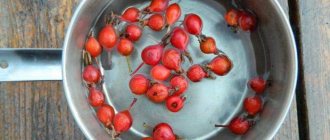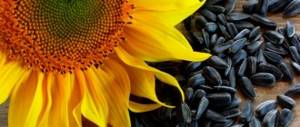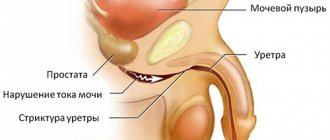- Effect on the body
- List
- Indications and contraindications
- Side effects
- Rules of application
- Recipes
Pathologies of the kidneys and bladder, hypertension, intoxication, a tendency to edema - these are the diseases for which diuretics are prescribed - drugs for removing excess fluid from the body. But athletes set the fashion for using them not as medicine, but as a means to fight extra pounds shortly before competitions in order to be in the desired weight category. Women immediately picked up this idea, but instead of synthetic tablets, in order not to be poisoned again, they most often use diuretic herbs, which do not burn fat, but help get rid of 2-3 kg.
Effect on the body
Many people think that diuretic herbs are a panacea for losing weight in a short time and without harm to health. Indeed, they have advantages due to which their army of fans is steadily growing every year:
- absence of irritating ingredients;
- complex effect: promote weight loss, remove fluid, reduce swelling, reduce bacterial activity, produce an anti-inflammatory effect;
- cleansing the kidneys and urinary tract;
- blood pressure control;
- improving the functioning of internal organs;
- normalization of heart function.
Weight loss occurs due to the removal of fluid accumulated in the tissues, which is precisely the same 2-3 kg in weight. All excess will be excreted in the urine. The swelling will subside and some parts of the body will appear slimmer. But the fats will not go away; they will remain folds on your waist and hips.
It seems that the effect of herbal diuretics on the body is only the most positive. But why then so much criticism? Few people pay attention to its downside. Even the best diuretic herb, along with its beneficial effects, has a lot of disadvantages:
- you will have to run to the toilet a lot and often: won’t this interfere with work, meetings, and a full life?
- along with excess fluid and toxins, beneficial substances are washed out of the body, especially a lot of calcium and potassium are lost, and this is always fraught with devastating consequences for the bones (the entire musculoskeletal system as a whole) and the cardiovascular system;
- the result of losing weight turns out to be very unstable: as soon as you stop drinking diuretic herbs, the kilograms lost with such difficulty will return;
- and you cannot take such drugs for too long, otherwise you may end up in a hospital bed with severe dehydration: a maximum of 5 days, no more;
- fat deposits will not go away, they will remain with you.
The result is undoubtedly good: using herbal diuretics, you can lose from 700 grams to 1.2 kg of weight every day. But at the same time, even the most effective diuretic herbs can disrupt the body’s functioning, and after such weight loss you will have to recover for a long time. Keep in mind both the pros and cons of these remedies to make the right decision about whether this method is worth losing weight.
Helpful advice. To compensate for the lack of calcium in the body, which will be lost when taking diuretic herbs, include bananas, avocados, dried apricots, raisins, dates, walnuts and buckwheat in your diet.
Operating principle
One of the pathologies that occurs most often in the human body is inflammation. This is a broad concept that means the development of an inflammatory process in various tissues or organs. The main manifestation is an increase in the affected tissue in size and the accumulation of fluid in it.
The effect of diuretics, which are used in this case, is precisely based on the removal of excess water. They help effectively relieve swelling, which in turn relieves pain.
Other properties of medicinal plants also have a positive effect on the patient’s condition, namely anti-inflammatory, i.e. promoting rapid recovery, and disinfectant, which helps destroy pathogenic microflora.
Due to their numerous beneficial properties, natural diuretics are used not only to treat diseases in the field of urology, but also a number of other diseases.
List
You can harvest herbs yourself if it is possible to collect them away from big cities and industrial enterprises. They can also be purchased in pharmacies as a separate product of the same name, or a herbal collection, or a medicinal product. But the minimum you need to know for this is their names. We present a list of the best because in fact there are about 200 effective diuretics in nature.
Herbs
- Marshmallow (root and herb);
- birch (leaves);
- lingonberry (leaves);
- valerian;
- cornflower (flowers);
- oregano;
- St. John's wort;
- centaury;
- calendula;
- cinnamon;
- nettle;
- corn silk;
- flax (seeds);
- Linden;
- coltsfoot;
- Melissa;
- juniper (berries);
- mint;
- orthosiphon stamen;
- parsley;
- tansy;
- motherwort;
- milk thistle;
- chamomile;
- black currant (leaves);
- knotweed;
- bearberry;
- fennel;
- horsetail;
- chicory;
- thyme;
- green tea;
- sage;
- rose hip.
Pharmacy drugs
- Canephron N: centaury, lovage root, rosemary leaves;
- Diuretic fees No. 1 and 2;
- Lespenefril (Lespefril, Lespeflan - its analogues);
- Nephrophyte;
- Flaronin;
- Cyston.
On the one hand, collecting and preparing herbs yourself is a very useful thing. So you can be 100% sure that you will lose weight using a natural product without chemicals or synthetics. On the other hand, plants are often presented in different subspecies, which are easily confused with each other, and they have different properties. Plus, the slightest violation in storage - and the raw materials can be thrown away. This explains the recommendation of experts to buy ready-made herbal preparations at the pharmacy, since they are properly equipped and contain detailed instructions for use.
Diuretic for children
Children can often suffer from kidney problems at a young age. Therefore, it is necessary to use plants as an auxiliary therapy. This has a preventive effect. Decoctions will help relieve symptoms and eliminate the causes of pathology.
Recipes:
- Pour water over lingonberries and thyme and leave for 2 days. Strain the broth and take orally before meals. The course of treatment and dosage is determined by the doctor.
- Pour a glass of water over the lovage and boil. The plant contains many oils and salts that will help reduce inflammation.
Indications and contraindications
Losing weight with the help of diuretic herbs can have a therapeutic effect if you have conditions and diseases that are direct indications for the use of such drugs. And it can result in serious health complications if there are contraindications. So always keep two lists in mind that will guide you when plants will work for good and when for evil.
Indications
- Arterial hypertension;
- glomerulonephritis;
- intoxication with drugs, poisons;
- urolithiasis disease;
- pyelonephritis;
- renal failure;
- heart failure;
- urethritis;
- cystitis.
Contraindications
- BPH;
- pregnancy;
- age under 18 years;
- hypokalemia;
- individual intolerance;
- lactation;
- nephritis;
- nephrosis.
Many women have such a great desire to lose weight as quickly as possible by any means that even contraindications are not a hindrance to them. I’m sick, I’m not sick, but I need to lose these unfortunate couple of kilograms. There will be a result, but the joy of losing weight will not last long: side effects will not keep you waiting, and the cherished number on the scale will return to its original state very quickly.
Contraindications for herbal kidney treatment
Many varieties of diuretic herbs used in traditional medicine are beneficial to the human body. However, any decoction has certain restrictions for its use by patients suffering from kidney diseases, including individual intolerance to the components of the product. These plants contain biological substances, the concentration of which is quite high, so their effect on the body with uncontrolled use of decoctions will be negative.
Patients with kidney disease should not self-select diuretic herbs without first consulting with their doctor. Taking natural diuretics does not always lead to a therapeutic effect. The main contraindications to treatment with diuretic herbs include the following:
- Pregnancy.
- Lactation period.
- Age up to 6 years.
- BPH.
- Individual intolerance.
- Nephritis with nephrosis.
Do not take herbs that cause irritation of the kidney parenchyma. Many diuretic herbs are contraindicated in patients with hypersensitivity to the effects of certain components of the kidney treatment. In allergy sufferers, they can cause a negative reaction in the body. The attending physician should advise the patient a diuretic decoction with a minimum of contraindications.
Similar articles:
Source: pochkizdorov.ru
Side effects
Ignoring contraindications, incorrect dosage regimen, overdose, unwillingness to study the instructions in more detail - all these frivolous actions are so characteristic of many women who achieve weight loss with the help of diuretic herbs. As a result, they will experience not only the loss of hated kilograms, but also a number of side effects - unpleasant, even dangerous to health and requiring medical intervention:
- dehydration of the body;
- allergic reactions;
- skin rash;
- discomfort;
- a constant desire to urinate, although there may be no fluid;
- pain in the heart and kidneys;
- a sharp drop in pressure;
- convulsions.
Yes, with the help of herbs you can achieve slight weight loss, but at the same time it is also quite possible to develop health problems. To reduce the risk of side effects, it is necessary to clearly and unconditionally follow the rules for their use and adhere to the instructions for use for pharmaceutical herbal preparations.
Treatment of children
If there is a need to use herbal medicines for children, you should follow the rules for safe use:
- to select funds, first of all, you need to consult a doctor;
- the dosage should be at least 2 times less than for an adult;
- It is better to start using the product by taking half a teaspoon;
- it is necessary to closely monitor the child after taking the drug in order to identify side effects such as rash, itching, allergic rashes and others as early as possible;
- At the first sign of concern after using the drug, you should stop taking it and consult a doctor.
Rules of application
In order for any herb to be diuretic and harmless for you, you need to adhere to certain rules for its use. Follow the dosage, listen to the experts, be attentive to your own body - and then the extra pounds, when they go away, will not take away your health.
- Be examined for contraindications and obtain permission from medical specialists (nephrologist, urologist and allergist).
- Carefully read the instructions for use for the selected drug.
- Follow the dosages and course of administration indicated in it.
- Do not consume them after 16.00, otherwise you will be guaranteed insomnia.
- Take a break from exercise. The only permission is no more than 45 minutes of low-intensity aerobics.
- The drinking regime should still be plentiful (up to 2 liters per day).
- Do not use pharmaceutical herbal diuretics without your doctor's permission, as they are designed to treat certain diseases, not weight loss.
It is forbidden:
- lift weights, run and do martial arts;
- visit the bathhouse, sauna, solarium, beach;
- drink tea, coffee, chicory;
- drink alcohol (during the entire weight loss course + another 72 hours after its completion);
- include green smoothies with celery, cucumber, and dill in your diet;
- follow a salt-free diet.
Follow these rules to lose weight without harm to your health. And remember: by choosing this method of combating excess weight, you take full responsibility for the consequences of such an event.
hudeyko.ru
Reception features
When taking diuretics, there are several features that, if observed, will make the treatment more effective and enjoyable. For example, taking the daily dose should be completed before 16:00 in the afternoon, since later use has a diuretic effect at night, which will certainly affect the quality of sleep.
Most often, after the course there is a break, which is done so that the body does not get used to a certain remedy.
In the chronic stage of the disease, use is quite long-term, which leads to the leaching of some beneficial substances, namely magnesium, potassium and others.
To replenish them, a nutritious diet is recommended, in which the amount of dried apricots, raisins, potatoes, avocados, dates, etc. is increased.
The best option would be to consult a specialist to prescribe certain herbs and herbs, rather than self-medicate. Some herbs have serious contraindications, and only a doctor can correlate all the available information.
Thus, using traditional medicine methods, it is possible to achieve significant relief from kidney diseases and prolong the period of remission. At the same time, avoiding many adverse reactions from medications.
It is worth noting that it is not single-component products that are considered more effective, but rather herbs. You can make them yourself, or buy a ready-made mixture at the pharmacy.
There are many safe diuretic herbs with beneficial properties, but they should be taken with great caution. The herb is not a medicine, so an overdose of the drug can lead to side effects and health problems. With proper use of diuretics for the kidneys, swelling caused by disease of these organs can be eliminated.
Features, properties of plants
Diuretic plants have different properties. Some herbal diuretics are designed to relieve swelling, while others help with diseases of the cardiovascular system.
List of diuretic herbs that everyone should know about:
- Erva Woolly. Prevents congestion in the kidneys, which lead to urolithiasis. This is the most powerful diuretic herb, which gently removes accumulated chlorides and acids. If the size of kidney stones is no more than 5 mm, then this herbal tea will help get rid of urolithiasis, and with it pain in the lumbar region. In addition, it has an additional effect - it strengthens the immune system, relieves inflammation, and stabilizes the water-salt balance. It is difficult to grow it at home, because it needs a tropical climate, but you can buy a package of the collection at a pharmacy for 50-90 rubles. Teas prepared on its basis must be drunk carefully, only through a straw, otherwise you can damage your teeth. As a side effect, nausea and allergies may occur.
- Horsetail. The leaves and stems of this plant contain many useful microelements. It relieves pain, stops bleeding, and strengthens the body. It grows in field conditions. Despite the fact that it has a diuretic effect, it is not recommended to use products based on it for kidney inflammation. The average price per package is 65-80 rubles. Horsetail can be drunk during pregnancy. It is an excellent assistant for diseases of the gastrointestinal tract, skin, and gall bladder.
- Calendula flowers. They have a good effect on the cardiovascular system, digestive tract, and help get rid of excess fluid. For people with hypertension, infusions and decoctions with calendula reduce high blood pressure. Products prepared from calendula flowers should not be taken during pregnancy, heart failure, or hypotension.
- Bear berry. Bearberry leaves, which have not only a diuretic effect, but also antibacterial and anti-inflammatory, treat many diseases of the abdominal cavity. If swelling appears on the face or body, then a decoction of bearberry will quickly help cope with this problem. It is relatively harmless. For adults and adolescents, it is an excellent cure for diseases of the digestive tract, nervous system, and fluid retention. But during pregnancy and breastfeeding it is dangerous. A small portion of the product can cause strong contractions of the uterus, which will lead to miscarriage, and sometimes to fetal death.
- Knotweed. It easily and gradually promotes the removal of excess fluid. In addition, it strengthens blood vessels, increases blood clotting, and tones the body. Instructions for use indicate that the plant should not be consumed in any form by pregnant, lactating women, as well as people with thrombosis or varicose veins. One package costs about 40-50 rubles.
Natural diuretics are great for removing excess fluid, but it is worth remembering that their abuse can lead to a deficiency of useful microelements such as magnesium, sodium, zinc, potassium, and calcium.
Diuretics: mechanism of action, classification, list of drugs and side effects
Diuretics – what are they in simple words.
arrajol.com Diuretics
are called medications used to treat many diseases accompanied by excessive accumulation of fluid in the body. These include a wide range of drugs that help reduce swelling and normalize the amount of fluid in cells and tissues. In addition to the medical field, diuretics are widely used in sports and dietetics.
Mechanism of action of diuretics
Diuretics are medications that slow down the absorption of salts and fluids in the renal tubules, thereby increasing the volume of fluid excreted by the urinary system.
What are diuretics - in simple words, these are diuretics that speed up the flow of urine. What is a diuretic in medicine? It is a medication whose effect is based on the ability to inhibit the reabsorption of electrolytes by the kidneys.
Increased excretion of electrolytes is accompanied by an increase in the volume of fluid removed from the body.
Indications for the use of diuretics
Due to their specific mechanism of action, diuretics are used in the treatment of diseases associated with excessive swelling. In pharmacology, diuretics are prescribed in the following cases:
- heart and vascular failure;
- glaucoma, accompanied by increased eye pressure;
- arterial hypertension;
- liver diseases;
- thiazide diuretics are prescribed for osteoporosis;
- renal pathologies accompanied by swelling;
- accelerating the elimination of toxic substances in various poisonings.
Increased swelling is often a consequence of pathologies of the cardiovascular and urinary systems. The accumulation of excess fluid develops against the background of sodium retention in the body.
Diuretics for hypertension and heart failure are aimed specifically at removing excess sodium, which leads to contraction, narrowing and increased tone of vascular muscles.
Diuretics remove excess sodium, causing blood vessels to dilate and blood pressure levels to decrease. In such cases, thiazide-like diuretics are prescribed.
Due to their mechanism of action, thiazide diuretics are used in cases of acute poisoning to carry out forced diuresis. This is an emergency procedure, during which patients are given a large volume of solution intravenously, followed by a diuretic that accelerates the removal of toxic substances from the body.
Diuretics. hu-hu..com
Classification of diuretics
Diuretics are of synthetic or herbal origin. All groups of diuretics have different chemical structures, on the basis of which their classification is based. Classification of diuretics by mechanism of action:
- osmotic;
- potassium-containing;
- thiazide;
- loopback
Each of these groups has a certain type of effect on the body. It is on the basis of the characteristics of the pharmacological action that the doctor selects a diuretic for a disease associated with increased swelling.
Osmotic diuretics
Osmotic diuretics are potent diuretics in the diuretic classification, which are most often used as part of complex treatment of the most severe, acute cases. Such funds are not prescribed in courses, but one-time.
The principle of their action is based on reducing the pressure in the blood plasma, which results in the accelerated removal of fluid from cells and tissues and the elimination of swelling.
These medications are used for swelling of the brain or lungs, acute poisoning, and shock.
Sulfonamide diuretics
Sulfa drugs are a broad group of drugs that include loop and thiazide diuretics. Thiazides are prescribed for arterial hypertension. Minimum dosages of these medications are used to prevent stroke.
It is not recommended to increase the prophylactic dose, as this may lead to hypokalemia. If necessary, thiazides are used simultaneously with potassium-sparing diuretics.
Loop diuretics provide an immediate diuretic effect, affecting kidney filtration and accelerating the removal of fluid and salts from the body. Medications in this group act in the area of the ascending limb of Ghentley’s loop.
They are characterized by a rapid diuretic effect, due to which they are used for the purpose of emergency relief of symptoms of renal and cardiovascular failure.
Potassium-sparing diuretics
Potassium-sparing diuretics are diuretics with a mild, gentle effect. They activate the removal of sodium and chloride ions, while simultaneously reducing the release of potassium.
Medications act directly on the distal tubules, which are “responsible” for the exchange of sodium and potassium ions. Diuretic drugs of this group are prescribed for congenital Liddle syndrome, cirrhosis, and glaucoma.
They do not have a negative effect on glomerular filtration.
Diuretics for weight loss
Recently, diuretics for weight loss have become widespread. The popularity of this method of weight loss is due to the fact that 90% of adipose tissue is built from water. Accelerated fluid removal helps reduce fat deposits.
A rational combination of diuretics actually has an antiatherogenic effect, due to which cholesterol plaques are destroyed. But the opinion that you can get rid of extra pounds with the help of diuretics is nothing more than a myth. When taking diuretics, only fluid is removed from the body.
They have no effect on fat cells. After finishing taking the medication, all the lost kilograms are returned.
Uncontrolled use of diuretics leads to disruption of the water-salt balance in the body, dehydration, and other serious pathologies. In the most severe cases of diuretic overdose, renal dysfunction, visual and auditory hallucinations, and coma are possible.
Medicines that are classified as diuretics are also used in sports. Some athletes are sure that removing excess fluid from the body contributes to the so-called “muscle definition.”
A diuretic helps hide traces of using various doping drugs.
Diuretics, which increase the volume of urine excreted, significantly reduce the concentration of doping drugs and their breakdown products in the bloodstream. Some athletes use diuretics to quickly lose weight in order to participate in various sparring sessions and competitions in a lower weight category.
After the death of one of the athletes taking diuretics for emergency weight loss, diuretic drugs in sports are prohibited.
Diuretics in bodybuilding
Diuretics are widely used by bodybuilding athletes. The most commonly used are loop diuretics, which have an immediate effect. Such medications should be used with extreme caution, since under conditions of increased physical activity they provoke severe dehydration of the body.
In bodybuilding, diuretics are used before competitions to reduce the volume of fluid in the subcutaneous tissue - this helps make the weightlifter’s body more prominent. There is also special sports nutrition, which already contains substances with a diuretic effect.
It should not be used for a long time.
List of diuretic drugs
- Furosemide
- Britomar
- Diuver
- Bufenox
- Lasix
Diuretics in bodybuilding. 365fitness.co
Side effects of diuretics
Diuretics should be taken with extreme caution, as uncontrolled use can cause serious harm to health.
Side effects of diuretics:
- Increased concentration of uric acid in the blood.
- Dry mouth.
- Drowsiness, lethargy, apathy.
- Muscle spasms.
- Stool disorder.
- Increased blood sugar levels.
- Decreased libido.
- Headaches, dizziness.
The consequence of using Furosemide is often nausea, diarrhea, and a decrease in calcium, potassium and magnesium levels. Possible side effects of diuretics also include vomiting, skin rashes, in men - deterioration of erectile function, in women there are menstrual irregularities.
Herbal diuretics
Non-prescription diuretics are serious medications, the uncontrolled use of which can lead to dangerous health consequences. Therefore, to obtain a diuretic effect, many prefer to use diuretics of plant origin - medicinal plants, food products.
Diuretics of plant origin. blog.plantei.com.br
Herbal diuretics
- birch leaves;
- chicory;
- shepherd's purse;
- rose hip;
- tansy;
- horsetail;
- chamomile;
- bearberry;
- juniper;
- flax seeds.
Natural diuretics are used in the form of infusions or decoctions. But before using them, you should definitely consult a doctor, since any medicinal plant has a number of contraindications.
Diuretic products
- strawberries;
- cowberry;
- watermelon;
- melon;
- cucumbers;
- pumpkin;
- celery;
- parsley and dill;
- cranberry;
- a pineapple.
Natural diuretics have several advantages over drugs - they have a mild and gentle effect on the body, are suitable for long-term use, and do not cause severe adverse reactions.
Such light diuretics can be combined with medications.
Contraindications to the use of diuretics
Diuretics in pharmacology are classified into separate groups, but there are a number of absolute contraindications in which the use of any diuretics is strictly prohibited. Contraindications for diuretics:
- hypokalemia;
- decompensated cirrhosis of the liver;
- acute renal and respiratory failure.
Thiazides are not used for diabetes of any type, as they can cause a sharp increase in blood sugar levels. Osmotic diuretics are prohibited in case of insufficient cardiac activity.
Conclusion
Diuretics are diuretic medications that are used for diseases accompanied by increased swelling. These are powerful drugs that are recommended to be taken only as prescribed by a doctor. Uncontrolled use of diuretic medications can lead to dangerous consequences for the body.
Source: https://filzor.ru/news/diuretiki_svoystva_primenenie_dlya_pokhudeniya/
For facial swelling
With swelling, most often the face swells in the area of the eyelids and cheeks. Before taking natural diuretics, you should find out the cause of this condition. For swelling of the face caused by diseases of the urinary system, almost any diuretic preparations are suitable, but for cardiovascular pathologies and varicose veins, you should choose the drugs more carefully.
Sometimes facial swelling can provoke an allergic reaction; in such cases, natural diuretics will not help.
Diuretic herbs - a list of the most effective:
- pharmaceutical chamomile;
- horsetail;
- parsley;
- dill;
- cranberry;
- rose hip;
- shepherd's purse;
- knotweed
The following recipes will help with swelling under the eyes:
- About 20 g of dried shepherd's purse is brewed with 300 ml of hot water and left for 15-20 minutes. After filtering, they usually drink 3 times daily on an empty stomach.
- Approximately 25 g of dried horsetail leaves are poured into 0.5 liters of boiling water. Afterwards the broth is passed through a strainer. Take 20 ml 3-4 times every day.
- Take 5 g of dill or parsley seeds and wash them first. Then they are poured into a 0.5 liter jar and filled with 350 ml of water at room temperature. In order for the water to become saturated with properties and the broth to become saturated, you must wait 5-7 hours. Then you need to drink 10 ml at a time with a break of 2-3 hours the whole day. To improve the effect, you can apply lotions to your eyelids.
- To make the daily amount of juice to cleanse the body of excess water, you will need 300-500 g of celery. You need to drink ½ glass at a time at least 3 times daily.
You can get rid of the accumulation of water and salts with the help of teas:
- From pharmaceutical chamomile. You will need 3 tbsp of dried flowers. They are filled with 4 cups of boiling water. Then everything is placed in a water bath and kept there for 15-20 minutes. You need to wait until the tea cools down. Drink like regular tea 3-5 times a day. This diuretic herb for swollen eyes is contraindicated for use by pregnant women, lactating women, and people with chronic, indolent diseases. Due to the fact that it thickens the blood, medications prepared on its basis are prohibited for patients with thrombosis and varicose veins.
- Brew about 110-120 g of rose hips in 1 liter of hot water in a thermos. Drink 0.5-1 glass at a time like tea, but no more than 3 daily. One brewed portion can be stored for no more than 48 hours at room temperature. A course of 2-4 days is enough for treatment. Therapy from such teas is contraindicated for gastritis, gastric ulcers, high acidity, thrombosis, and heart failure.
- Peel and rinse 300-400 g of cranberries. Grind until smooth using a mixer. Place everything in cheesecloth and squeeze out the juice. Pour 1 liter of boiling water over the remaining mass, boil, add 100 g of granulated sugar. As soon as the drink becomes warm, pour the juice into it. It is safe for a child and a pregnant woman. Drink 1-3 glasses daily.
The best recipes for stones
The following drugs are most popular in the treatment of kidney stones:
- An infusion made from powdered carrot seeds: mix a tablespoon of carrot seed powder with a glass of boiling water. Cool the infusion. This product should be taken 250 ml before meals, half an hour before meals.
- Chilled decoction of dried rose hips: pour the dried berries into a thermos and add hot water to it at the rate of 6 tablespoons to prepare a liter of decoction. Leave for one night. Drink as tea throughout the day.
- Infusion of fresh or dried wild strawberry leaves: prepared from 3 tablespoons of strawberry leaves, poured with 500 ml of boiling water. Leave to infuse for 30 minutes. It is recommended to take the infusion half a glass in three doses.
- Mix 4 equal parts of yarrow, rhubarb root and immortelle flowers. Mix a tablespoon of the resulting herbal mixture with a glass of boiling water. Divide the chilled infusion into two parts and drink in the morning and evening.
- Mix 3 parts each of knotweed, bearberry, chamomile, and corn silk. Mix a tablespoon of the resulting herbal mixture with boiling water in an amount of 200 ml. Let the infusion cool. It is recommended to take 125 ml of the medicinal composition after 60 minutes from the moment of eating.
For swelling of the legs
Swelling of the extremities can be a concern with pathologies of the heart, vascular system, and kidneys. Diuretic preparations for edema, made from herbs, help ensure that excess water leaves the body, and the filtration capacity of the kidneys is regenerated.
Diuretic herbs for swollen legs:
- tricolor violet;
- anise;
- St. John's wort;
- pharmaceutical chamomile;
- calendula;
- juniper;
- horsetail;
- corn silk;
- lingonberry leaves;
- knotweed;
- peppermint.
How to prepare a diuretic for edema - recipes:
- Take 10 g of juniper seeds and brew in 250 liters of hot water. In order for the juniper to release all its beneficial microelements into the decoction, you need to wait 2-3 hours, then drink 50 ml 3 times daily on an empty stomach. These seeds can be added to diuretics for edema. They should not be used for hypertension, pregnancy, diseases of the gastrointestinal tract, or chronic nephritis.
- Pour 10 g of flax seeds into a container and brew in 0.5 liters of boiling water, wait until it cools. The taste is bitter, so you can add granulated sugar and honey. It is the strongest remedy, so it is advisable to carry out treatment during weekends and holidays, because the number of urges to go to the toilet increases to 10 per day. It is impossible to be treated for exacerbation of abdominal diseases.
- You need to brew 2 tsp. dry anise leaves in 1.5 liters of boiling water. This remedy falls into the category of strong diuretic herbs for edema. It should be taken three times daily for 3-4 days. Prohibited for pregnant women and patients with chronic abdominal diseases. It also relieves swelling of the legs in the elderly.
- Place 15 g of birch leaves in a container and pour 300 ml of hot water into it. Drink 50 ml three times daily. Does not cause allergies. Does not negatively affect the child's body. It is important to treat patients with chronic nephritis with caution. An herb for the kidneys that relieves swelling from the legs in just 2-3 applications.
- Brew 2 tsp. tricolor violets in 500 ml of hot water. This diuretic herb for swelling of the legs also improves conditions with various pathologies of the urinary system.
Decongestant diuretic herbal preparations:
- Diuretic collection 1. It can be used to treat the urinary system with urinary retention, pyelonephritis, and urolithiasis. Ingredients: rose hips, calendula, chamomile flowers, plantain leaves, lingonberries. All components are mixed in the same ratio. You need to pour 20 g into a jar and pour 1.5 liters of boiling water. This diuretic collection of herbs is taken according to the scheme three times daily, 1/3 cup.
- The collection is diuretic 2. The composition contains powerful components that quickly remove liquid. To prepare it at home you need the roots of lovage and steelweed, and juniper fruits. Ingredients in equal proportions. To prepare a daily portion you need 1 tbsp. l. herbal mixture per 300 ml of boiling water. This urological diuretic is contraindicated during pregnancy and pyelonephritis.
Indications
Plants contain a large amount of biological substances; you should not take them uncontrollably. If the product is consumed in large quantities, it can negatively affect your health.
Main indications:
- Hypertension.
- Pyelonephritis.
- Chronic glomerulonephritis.
- Urethritis.
- Kidney diseases.
Plants contain a large amount of biological substances, so they should be taken carefully
Traditional medicines for ascites
This pathology is an accumulation of ascites fluid. Its development is facilitated by disturbances in the functioning of the kidneys, gastrointestinal tract, and hormone production, which results in an unnatural enlargement of the abdomen.
Diuretic herbs for ascites:
- birch leaves and buds;
- bearberry;
- parsley;
- sweet clover;
- calendula;
- Salvia officinalis;
- coltsfoot.
To cope with dropsy, prepare a natural diuretic medicine according to the following schemes:
- You need to boil 3 tbsp. l. bear berries in 200 ml of water. Drink once in the morning on an empty stomach. This natural diuretic should not be taken by pregnant women to avoid miscarriage and stop the development of the embryo.
- For 1 glass of hot water there are 10 g of horsetail, all this is boiled over high heat for 5 minutes. You need to drink the decoction in the morning before your first meal. This herbal diuretic is approved for pregnant women.
Urological diuretic collection for dropsy:
- Mix birch buds and horsetail leaves in equal quantities. Brew 4 tbsp. l. in 1 liter of boiling water. Drink 1 time in the morning. A urological diuretic that improves the condition of edema. The kidney drink is also recommended for inflammation of the urinary system and gallbladder.
- Melilot officinalis, coltsfoot, calendula are taken in 1:1:1 proportions. Brew 17 g in 450 ml of boiling water. Urological diuretic collection has a positive effect on urinary function. You can’t get too carried away with the decoction. Symptoms of overdose are nausea, vomiting, dizziness.
- Urological diuretic mixture consists of raspberry, flax, lingonberry, and parsley leaves. The diuretic herbs for the kidneys included here are not only suitable for removing accumulated fluid, but also for normalizing metabolic processes.
Traditional recipes at home
Most often, herbs are taken in the form of decoctions and infusions, which are very easy to prepare. Diuretics acceptable for use at home:
- Horsetail is used as follows: 4 tsp. herbs are poured with boiled water in a volume of 400 ml; The broth is allowed to brew, then filtered and drunk throughout the day, divided into several equal portions.
- Thyme is prepared as tea. To do this, take 15 g of the dry mixture and brew it with 1 liter of boiling water. You need to infuse for 15 minutes, after the infusion has cooled, take it 3 times a day, 1 glass.
- Linden tea is brewed: 1 tbsp. take 2 tsp boiled water. mixtures, and you can use both leaves and flowers. It is enough to infuse for 10 minutes, after which the tea is filtered and consumed hot.
Herbal preparations
Herbal preparations do not contain synthetic substances. They are prescribed to pregnant women for problems with the urethra and water accumulation in the body. These diuretics contain all the necessary herbs to promote frequent urination and cleansing.
The following diuretics are available:
- Canephron. German manufacturers have created tablets from rosemary and lovage. Sold in the form of a solution with alcohol and capsules. Dosage regimen: 2 capsules three times a day for 2 weeks. They are not the strongest in terms of intensity of impact, but have a minimum of contraindications, only diabetes.
- Eufillin. It has diuretic properties, but is indicated for bronchial asthma and shortness of breath. Contraindicated for people with heart disease.
On average, ready-made herbal diuretics in capsules and drops cost 300-500 rubles.
Useful herbs from the Apiaceae family
Many medicinal infusions for the prevention and treatment of kidney diseases are prepared based on herbs from the Apiaceae family. These include parsley, dill, fennel, anise, and celery. There are also poisonous plants that can only perform a decorative function in the garden: wild parsley, spotted hemlock, and hogweed.
Fennel is a plant that has many beneficial properties and is effective in treating various diseases of the genitourinary system. The plant with an aniseed sweetish aroma resembles dill in appearance. All parts of fennel are beneficial to health, including its seeds, fruit, oil, and root.
The plant contains folic, nicotinic, and citric acid, which have a positive effect on kidney function. Contraindications for use are individual intolerance, pregnancy, allergic diseases, diarrhea. Fennel tea, which has diuretic and laxative properties, allows you to cleanse the body by removing toxins from it.
Parsley is a diuretic herb that has a cleansing effect on the kidneys. It has healing properties that allow it to remove toxins, salts, and various complex compounds from the body. The polysaccharide plant containing vitamins B and C, magnesium, iron, potassium, and inulin is beneficial to the body.
A decoction of parsley, prepared according to all the rules, allows you to eliminate stones in various organs of the gastrointestinal tract. It can be prepared by pouring boiling water over 1 liter of chopped parsley roots. Diuretic tea needs to be infused for about 1 hour. You should drink half a glass of the decoction for 10 days. Abuse of the drink leads to migraines, nausea and general weakness.
Dill is a medicinal product that contains large quantities of vitamins and minerals, copper, magnesium, zinc, and ascorbic acid. There are no contraindications to the use of this herb, unless individual intolerance is taken into account. Pregnant women can consume it in moderation after visiting a doctor.
You can cleanse your kidneys not only with dill. Roots and grass seed are suitable for this. A mixture of dill and parsley, taken 100 g each, has a diuretic effect. 1 liter of apple juice is also needed. All components must be divided into 5 equal parts. You should drink the herbal juice gradually throughout the day with still water. In the morning and at night, i.e. Before using the product and after finishing taking it, a cleansing enema is done.
Anise is one of the useful plants, which is an annual herb from the Apiaceae family. Its height can reach 30-60 cm. The grass has a branched stem at the top, coming from a thin spindle-shaped root. The leaves of anise are simply pinnate, and the basal ones are long-petioled. The flowers of the plant are collected in umbrellas. Anise does not grow wild; it is grown in the regions of the North Caucasus, Krasnodar Territory, Kursk, Voronezh, and Belgorod regions.
An anise decoction for the kidneys can be prepared by taking the crushed fruits of the plant in an amount of 1 tsp. and placing the raw materials in an enamel container. The contents of the container should be boiled for 30 minutes, pouring 1 tbsp into it. hot water. After straining the resulting broth, it is brought to its original volume. It is recommended to use the product before meals, a quarter glass about 3-4 times a day.
For children
A child’s body is weaker and more susceptible than an adult, so the question of which diuretic herbs are suitable arises most acutely. First of all, natural diuretics should be of medium, low intensity.
Which diuretic herb is not harmful in childhood:
- parsley;
- pharmaceutical chamomile;
- anise;
- sage;
- horsetail.
Diuretic herbs for children are used for treatment at any age.
pochki2.ru
Indications for use
Herbal diuretics are used in treatment not as separate agents, but as additives to pharmacological drugs. Due to constant filtration of the kidneys, herbs prevent the risk of new edema and intoxication, and do not irritate the mucous membrane of the gastrointestinal tract and genitourinary system.
The main indications for the use of diuretic herbs are
- Inflammatory processes of the genitourinary system (cystitis, pyelonephritis, etc.), which are accompanied by swelling;
- Chronic form of glomerulonephritis;
- Urolithiasis (as a prophylactic after stone removal);
- Cardiovascular diseases with concomitant swelling of the face and extremities (hypertension, various heart pathologies);
- Excess weight due to fluid accumulated in the body;
- Swelling of the legs, which occurred due to prolonged standing or sitting position;
- Intoxication with alcohol, poisons and potent drugs, including antibiotics.
Diuretic herbal remedies cannot be used without a doctor’s prescription, since their dosage, method of preparation and administration are individual and can only be calculated by a specialist.
Indications and contraindications
It is impossible to list all the herbs that are not only used to treat the kidneys, but also have a diuretic effect. But all of them undoubtedly have unique properties and can save a person from the following diseases:
- from urethritis;
- cystitis;
- renal edema;
- urinary tract diseases;
- urolithiasis;
- pyelonephritis;
- proteinuria;
- glomerulonephritis.
Important! Among other things, diuretic herbs can also restore the acid-base balance of urine, as well as significantly improve all metabolic processes in the kidneys. They are also capable of dissolving and completely removing kidney stones.
Despite the fact that medicinal herbs have a huge number of benefits and have a beneficial effect on the entire body, some of them still have a number of contraindications, which are mainly explained by toxicity.
Since medicinal herbs have contraindications, they should only be prescribed by a doctor, who will select the necessary dosage and thereby protect the body from negative effects.
As practice shows, the use of diuretic herbs for kidney disease is not recommended in the following situations:
- if a person has increased acidity of gastric juice;
- inflammatory and ulcerative diseases of the gastrointestinal tract are diagnosed;
- with acute inflammation of the kidneys;
- if the patient has allergies;
- for prostatitis.
This is not the entire list of diseases and inflammatory processes, as a result of which diuretic medicinal herbs should not be used, as this can lead to quite unpleasant and unpredictable consequences.
Diuretic herbs should be used with extreme caution to treat kidneys if you are expecting a child. Also, you should not get carried away with such treatment in childhood, since it is quite problematic for a child to determine the dose and concentration of active substances. Herbs should be used with extreme caution if you suffer from urolithiasis. This is primarily explained by the fact that very large stones can begin to move in the kidneys and thereby block the lumen of the ureters. And this, in turn, is quite a dangerous phenomenon for the whole organism.
Even if you have absolutely no contraindications to using medicinal herbs, you should not do it yourself. You must first consult with a doctor who knows all the prescriptions and can professionally make a prescription.
gynecolg.ru
Principles of herbal medicine therapy
Therapy with medicinal herbs, as with any other methods, must comply with the following principles in order to avoid undesirable consequences:
- stages - herbal medicines should be used in courses with breaks, regular correction of treatment and gradual complication of the composition of the drugs used, depending on the stage of the disease;
- individuality - the selection of various herbs and herbs should be made exclusively by a doctor individually for each patient in accordance with the characteristics of the course of the disease and the body’s response;
- continuity - under no circumstances should treatment be interrupted.
Also, it should be noted that the use of diuretic herbs and herbs for more than 7 days in a row is not recommended.
The Power of Diuretic Herbs
Diuretic herbs are used in the treatment of many diseases. Naturally, as in most cases, they do not have any side effects on the human body. They are used as a remedy for many diseases, such as:
- Kidney diseases;
- Arterial hypertension;
- Edema;
- Urinary tract infections, etc.
Diuretic herbs can also be used to treat excess fluid retention, drug overdose, and promote urination. They should be consumed under the supervision of a physician or qualified herbalist.
They remove excess fluid; if there was swelling, they will help remove it. Some disinfect the urinary system and kill pathogenic bacteria there. They stop the inflammatory process. The man is on the mend.
Are there any contraindications? Yes, if you have:
- Allergy to many herbs.
- The child is under 6 years old.
- If you have kidney stones, be careful when taking it, there is a chance that they will pass. Acute colic will occur in the kidneys.
- There is little potassium in the body.
- When a man has prostate adenoma. Urine may be retained, which is harmful.
Best Diuretic Herbs
- Watermelon
- Chamomile
- Birch buds
- Lingonberry leaves
- Bearberry leaves
- Sage
- Fennel
- Chicory
- Mint
- centaury
- Dandelion
- Nettle
- Yarrow
They are safe and are used by many people. Information related to several of them is listed below:
Yarrow. Eliminates toxins and unwanted fluids in the body through urination. Its essential oil creates a strong anti-inflammatory effect.
Dandelion. Cleanses the liver and blood. It helps the spleen, pancreas, kidneys and liver work better.
Nettle. Nettle root has diuretic properties, but other parts of this plant are used to cleanse the human body, for example, to promote blood clotting.
What is important to know when using diuretic herbs?
Many diuretic herbal remedies can be taken in capsule, tea, or extract form. Some of them can be eaten raw or eaten in salads, such as mint, dandelion, sage and others.
Side effects of diuretic herbs
Different natural herbs have different side effects. They are safe only when taken in moderation. Excessive dosage of herbs may lead to problems or symptoms such as:
- Decrease in circulating blood volume.
- Dehydration of the body.
- Nausea.
- Diarrhea, etc.
If these symptoms appear, you should stop using them immediately. Consuming natural diuretic herbs in acceptable quantities can protect you from many diseases and help you look healthy and forever young.
Diuretic herbs - list for the kidneys
Kidneys are important organs in the human body; they filter urine in large quantities every day. When the kidneys become diseased, it is difficult for them to withstand heavy loads. Need help - taking a diuretic herb for the kidneys. If you have pyelonephritis, then take infusions of bearberry or horsetail.
Help prevent the formation of stones in your kidneys:
1. Rosehip. 2. Knotweed. 3. Parsley. 4. Nettle. 5. Birch leaves. 6. Juniper.
If there are already stones, then after consulting a doctor, you can try to dissolve them. You will need a decoction of: parsley with lingonberry leaves, add rose hips and strawberries, and be sure to add carrot seeds.
Diuretic herbs list for high blood pressure
Hypertensive patients are recommended medicinal decoctions from:
- Cranberries.
- Motherwort.
- Yarrow.
- Birch buds.
- Hawthorn flowers.
Hawthorn
Hawthorn belongs to the Rosaceae family and is a strong diuretic.
It reduces fluid accumulation in the body and helps improve conditions such as congestive heart failure .
The nutrients this plant contains help increase the frequency and quantity of urination.
On the other hand, hawthorn berries are rich in vitamin C, B and minerals. In addition to being a natural diuretic, hawthorn will also help:
- treat kidney problems
- improve blood flow to the heart
- relieve fever
Diuretic herbs for weight loss
Herbal diuretics can help reduce discomfort associated with excess water (fullness and obesity). Herbal diuretics are also an effective solution for people wanting to lose weight.
Diuretic herbs for weight loss help remove excess fluid from the body by promoting urination without loss of electrolytes or potassium.
A weight loss supplement is a gentler option for the body than taking pills with other medications. You can buy a ready-made mixture at a pharmacy or from old healers, or make it yourself.
Excellent herbal diuretics:
- Horsetail.
- Milk thistle.
- Birch leaves.
- Parsley.
- Black elderberry flowers.
- Chamomile flowers.
- Linden trees.
- Mint.
- Coltsfoot.
- Liquorice root.
- Corn silk.
- Blackberry leaves.
- Dandelion root.
- Nettle, other herbs.
After use, you will notice a slight laxative effect, your metabolism will noticeably speed up, and toxins will be removed from the body along with bad cholesterol.
Diuretic herbs for weight loss reviews
Reviews:
Diuretic herbs for cystitis
With this diagnosis, it is important to establish urine flow. It is best to introduce knotweed and horsetail into the diet. It is effective to drink them together.
Normalizes urinary outflow: lingonberries with angelica, bearberry.
To relieve painful spasms, take: St. John's wort with tansy, chamomile with immortelle. Chronic cystitis takes a long time to treat. The best recipe: lingonberry leaf + marshmallow + nettle + chamomile + tansy. Brew directly into a thermos and drink instead of tea 3 times a day.
Diuretic herbs for hypertension
This is often true for older people. The best compositions from:
- Bearberry leaf.
- Sequences.
- Silver birch leaf.
- Common dill.
- Horsetail.
- You need kidney tea or orthosiphon.
Diuretic herbs for edema
Edema is a symptom that there are problems in the body. First of all, go for a consultation with your family doctor. It is necessary to treat the diseased organ or system, and then drink decoctions.
They are often prescribed to people suffering from edema (accumulation of fluid in body tissues), as well as people who have high blood pressure, glaucoma, urinary tract infections, and heart disease.
The best diuretic herbs to relieve swelling:
- Nettle.
- Chicory.
- Hop.
- Dandelion.
- Yarrow.
- Burdock.
- Common bearberry.
- Raspberries.
- Mint.
- Saffron.
- Sage.
- Birch.
- Thyme.
- Anise.
- Parsley.
Good collection: 20% - birch leaves, 20% - dandelion leaves, 60% - raspberry leaves. Take 1 tbsp. l. and throw it into a glass of boiling water. Let it brew and take up to 5 rubles. per day 1 tbsp. l..
Diuretic herbs for swollen legs
When blood circulation is impaired, the legs may swell, as with varicose veins, thrombophlebitis and other diseases.
Good recipe: 1 tsp. blue cornflower + 1 tbsp. and 1 tbsp. l. boiling water and let from 8 to 9 hours. it will brew. The infusion will be a pleasant yellow-brown color. Strain, drink 3 times before meals. per day 2 or 3 tbsp. l..
Juniper is useful. For example, fill 2 liters. boiling water herbs: 30% juniper, 30% fennel, 30% licorice root. It will come out dark brown. 3 p.m. before meals. per day you can drink 1 tbsp. l..
Useful:
- Flax seeds.
- Cherry blossoms.
- Anise.
- Birch leaves.
- Chamomile.
- Calendula.
Important! Each of the herbs or leaves, seeds has its own contraindications. Before you add them to your collection, read about them on the Internet, in encyclopedias about plants, and be healthy!
Diuretic herb for swollen eyes
Decoctions taken internally, in the form of lotions, from:
- Horsetail.
- Rosehip.
- Bearberry leaves.
- Leaf orthosiphon.
To make the swelling go away, take one of the herbs, brew it, take 0.5 cup 3 times a day. per day. If you take this remedy for a long time, include in your diet to replenish the body with useful substances (calcium, for example): dairy, bananas, baked potatoes, oranges.
Diuretic herbs for facial swelling
The best compress is chamomile. The decoction must be strong. Soak swabs in it and apply to closed eyes. Drink chamomile tea throughout the day. In addition to chamomile, you can add mint and lemon balm. A good lotion is an infusion of mint leaves (1 tsp) with dill seeds (1 tsp). Boil over low heat for 10 minutes.
Diuretic herbs during pregnancy
What diuretic herbs can you take during pregnancy? To avoid swelling, salt your food less, move more and drink at least 3 liters of water per day. Safe bearberry. Take 1 tbsp. l. steam and take 1 tbsp. l. morning and evening before meals. It is a diuretic with an antibacterial and anti-inflammatory.
Other approved diuretic herbs for edema during pregnancy:
- Orthosiphon leaves.
- Bear ears (bearberry).
- Birch buds.
- Horsetail.
- Lingonberry leaves.
- Dried apple peel.
- Viburnum (fruit).
- Celery root (juice).
The most harmless diuretic herbs
The most harmless are:
- Birch leaves or buds.
- Lingonberry berries and leaves.
- Horsetail.
- Mint.
- Linden blossom.
- Bearberry leaves and other herbs.
Herbal diuretic tea
To prepare tea from diuretic herbs you need: add a teaspoon of dry diuretic herb to a glass of boiling water. Brew tea for 10-15 minutes. After this, strain and add honey to taste. It is recommended to consume 1/3 cup 3-4 times a day.
Before consuming herbs, you should be well aware of them. Most herbs can be consumed in capsule or tea form, but it is always best to consult an herbal practitioner before taking any steps.
Remember that seemingly harmless “herbs” can cause harm. Remember the beautiful poppy from which powerful drugs are produced. Therefore, use only proven recipes, take them from reliable sources. If you feel unwell after taking the preparations, stop immediately and consult your family doctor or therapist. Plants help us fight diseases.
Diuretic during pregnancy
During gestation, a woman’s body experiences great stress, and swelling of the legs may occur. Collections from plants will help correct the situation. They are harmless to the fetus. Decoctions will normalize the water balance and help fluids to be removed from the body. It is important to consult a doctor before treatment.
Recipes:
- Pour boiling water over a spoonful of chicory and leave for 10-15 minutes. Cool the composition and take a glass per day. You can add cornflower.
Kidney collection
The list of diuretic herbs for kidney treatment is quite long. But from this huge assortment, some herbs are isolated, which are included in the very famous and so-called kidney collection. In order to collect all the herbs of this collection together, you need to purchase the following varieties:
- oregano;
- thyme;
- creeping wheatgrass;
- half fell;
- nettle;
- celandine;
- Ural licorice;
- dandelion officinalis.
All these herbs can have a truly miraculous effect on the entire human body. They are used not only as a diuretic, but also perfectly help if the patient is diagnosed with the following diseases:
Despite the fact that such a collection can help get rid of many diseases that are associated with kidney problems, it is also worth taking into account the fact that systematically using the same collection is strictly prohibited.
The composition of the decoctions must constantly change
The composition of herbs must necessarily change. This must be done primarily because the body gets used to the medications already taken, as well as herbs, and therefore the treatment becomes ineffective. To ensure that the treatment is always effective and does not have a negative effect on the body, it is best to have the doctor make the appointments. Only a specialist in this field will be able to not only select the most effective renal collection for each case individually, but will also supplement it with medications that, in combination with folk remedies, will help get rid of the disease in a fairly short period of time.
List of herbs for kidneys with diuretic effect
Kidneys play a vital role in the human body. They filter urine, but during the development of the disease they lose this function. If their normal functioning is not maintained, not only will the course of the disease worsen, but the general condition of the patient will also seriously deteriorate.
In medicine, there are various chemical diuretic drugs, but they have an aggressive effect on internal organs. Herbs treat gently but effectively; their positive effect on the body can be observed 48 hours after the start of use.
The following herbs will help in removing accumulated toxic fluid and relieving swelling:
Shepherd's Purse
In modern medicine, this annual herb is used as a diuretic and anti-inflammatory agent in the treatment of pyelonephritis. For treatment, the herb is used fresh: finely chopped, squeezed out and mixed with boiled water. A spoonful of honey is added to the drink, as the liquid has a specific taste. Take throughout the day in equal portions.
Herbs for swollen legs
Legs usually swell due to heart and kidney failure, thyroid dysfunction, impaired lymphatic drainage and liver disease.
Plant material for relieving swelling of the feet is effectively used in the form of food additives (as seasonings for dishes and salads) and essential oils used for foot baths and massage.
| Improves renal blood circulation, has a high diuretic effect, used 3 times a day for a month | |
Lespenefril | Improves urine excretion, reduces the amount of nitrogenous products in the blood, enhances filtration in the renal tubules. Used for chronic kidney diseases. May be available in tincture form. |
Aflazin(hibiscus extract) | In addition to diuretic, it has an anti-inflammatory effect. There are restrictions: prohibited for pregnant women and children under 6 years of age. Possible allergies. |
| Free of chemicals and completely plant based. 0.5 tsp dissolve in a glass of warm water, apply 3 times a day. |
| Name | Therapeutic features | Features of application |
Horsetail
Prevention of kidney stones
Currently, there are a huge number of factors that result in the formation of stones, sand, and various inflammations in the kidneys. In order to prevent these processes, you need to closely monitor your health and follow simple recommendations, as well as systematically use herbs, products and kidney herbs that have a diuretic effect. These products include almost all melons, as well as cucumbers, of course, if you are not allergic to them.
Also, in order to prevent the appearance of sand and stones, as well as to avoid inflammatory processes in the kidneys, it is recommended, regardless of the time of year, to use various decoctions, tinctures or teas that are brewed or infused with diuretic medicinal herbs.
You can take decoctions to prevent kidney disease
In addition, herbs such as parsley, juniper berries or celery have a positive effect on the body. They can be eaten by adding them when preparing dishes.
Fees for cleaning and sand removal
The dissolution and removal of sand is facilitated by:
- nettle and mint (leaves), horsetail, calamus root, elderberry (flowers), rose hips and juniper (fruits) - everything is mixed in equal proportions, poured with boiling water and drunk in small doses throughout the day.
- madder (root), birch leaves, field steelhead, horsetail, chamomile flowers, dill seeds, kidney tea - these components are taken in equal proportions and prepared as a decoction.
- bean pods, corn silk, bearberry, hernia grass, knotweed are also mixed in equal proportions.
Contraindications
Despite the therapeutic effect of diuretic herbs, they must be used with caution, as there are a number of contraindications:
- increased stomach acidity;
- gastritis;
- stomach and duodenal ulcers;
- acute kidney inflammation;
- pregnancy and lactation;
- prostate adenoma;
- individual intolerance to herbs.
There are particular contraindications:
- Lingonberries should not be used for inflammation of the urinary tract;
- horsetail – for nephrosis and nephritis;
- juniper - during pregnancy and gastrointestinal diseases;
- goat's rue causes a sharp increase in blood pressure.
Children under 6 years of age are not prescribed diuretic herbs; at older ages, infusions are given in a less concentrated form.
Diuretic herbs have a number of advantages over drugs: they are gentle on the body, act gently and effectively, and are available to anyone due to their low cost. But we must remember that if the disease has begun, then herbs can enhance the effect of traditional medicines, and not replace them.
| Enhances fluid removal, improves blood circulation and metabolic processes, normalizes water-salt balance, removes toxins. May cause an allergic reaction. | 2 tsp pour into 250-300 ml of boiling water and leave on the fire for 3-5 minutes, cool, filter and take 3 times during the day in small sips. |
| Has an anti-cancer effect, actively relieves facial swelling | 2 tbsp. seeds are boiled in 0.5 liters of water for 10-15 minutes, then infused for 1 hour. To improve the taste and speed up the process, add the juice of ½ half a lemon. The decoction is taken 100 ml 4 times a day. |
| Stimulates kidney function, removes fluid | 1.Introduction of petioles and leaves into salads 2.Decoction of leaves: cut the leaves and petioles, add water 2 cm above the tops, boil for 2 hours, cool, strain and drink in small sips throughout the day |











